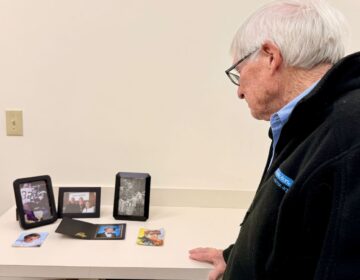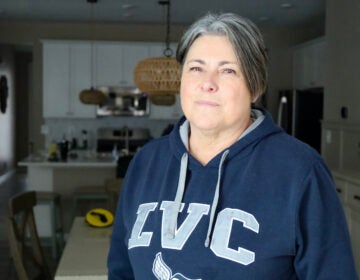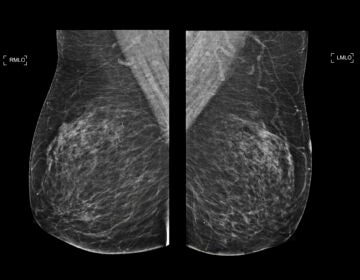Changing the Way We Think About Chronic Pain
Listen 49:16
(Bigstock / CHAI CGN)
Pain is powerful — and when it becomes chronic, it can be all-consuming. It takes over our minds, saps our energy, and becomes the focus of our existence. And yet, pain is also invisible. We can try to describe it — stabbing, nagging, dull, achy; we can rate it on a number scale from one to 10, or point to a smiley or frowny face to define it, but it’s not something we can ever fully communicate. Our pain is ours — to feel, to bear, to live with.
Millions of Americans live with chronic pain, and yet it can be a profoundly lonely experience. The individual nature of pain, the mysterious way it often sneaks into our lives, without a definitive source, can make it hard to deal with — and even harder to treat.
On this episode, we explore the nature of chronic pain — what causes it, how it affects us, and the ongoing fight to stop it. We talk with physician Haider Warraich, who wants to change the way medicine thinks about pain, people who’ve spent years trying to treat their pain, and a reporter who’s tracking the newest developments in pain medicine.
Also heard on this week’s episode:
- As a med student in Pakistan, all Haider Warraich knew about pain was what he’d learned in textbooks. That changed when, while lifting weights at the gym, his back gave out, and he found himself thrust into a world of agony. Today, Warraich is a doctor who’s calling on the medical world to change the way it approaches pain — we talk with him about his own experience, what he’s learned about the nature of pain, and what doctors can and should do differently. His book is “The Song of Our Scars: The Untold Story of Pain.”
- Millions of Americans live with chronic pain — and despite seeing doctor after doctor, never find an answer about what’s causing their misery, or how to fix it. Reporter Alan Yu tells the story of one man whose journey to alleviate his pain took him through the gamut of medical options — and ended in an unexpected place.
- Drugs like oxycodone used to be a go-to solution for treating acute and longer-lasting pain — but that’s changed in the wake of the ongoing opioid epidemic. We talk with Damian Garde, a biotech industry reporter for STAT News, about the challenges to developing non-addictive painkillers, and one candidate — a new drug from the biotech company Vertex — that could offer hope.
WHYY is your source for fact-based, in-depth journalism and information. As a nonprofit organization, we rely on financial support from readers like you. Please give today.






